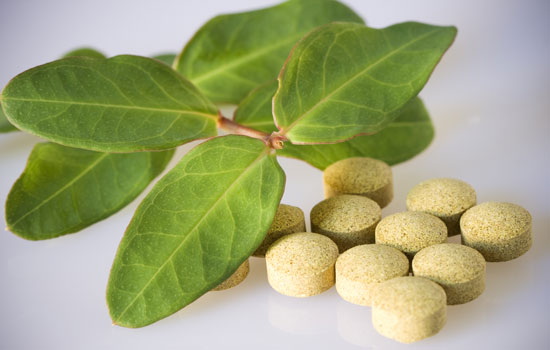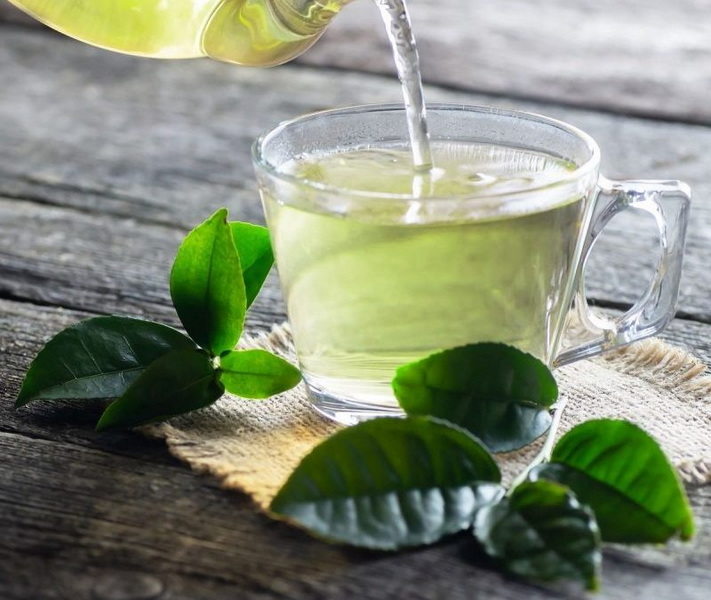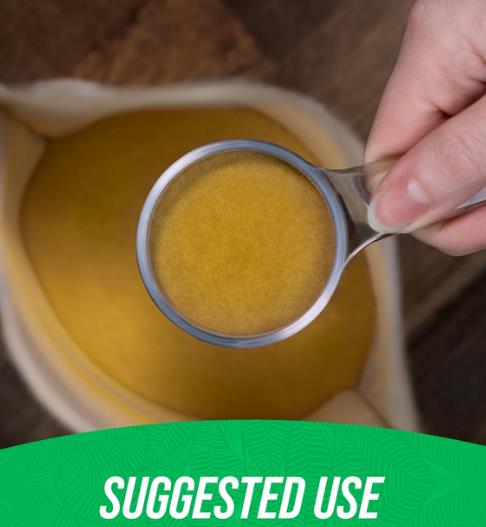Content Menu
● Understanding Green Tea and Green Tea Extract
>> What is Green Tea?
>> What is Green Tea Extract?
● Nutritional Comparison
● Health Benefits of Green Tea
>> Rich in Antioxidants
>> Supports Weight Loss
>> Promotes Heart Health
>> Enhances Brain Function
>> Supports Healthy Skin
● Health Benefits of Green Tea Extract
>> Concentrated Antioxidant Power
>> Potential Weight Loss Aid
>> Blood Sugar Regulation
>> Skin Health Benefits
● Comparing Safety and Side Effects
● Practical Uses of Green Tea and Its Extract
>> How to Incorporate Green Tea into Your Diet
>> How to Use Green Tea Extract Safely
● Conclusion: Which is Better?
● Related Questions
>> 1. What are the main differences between matcha and regular green tea?
>> 2. Can I drink too much green tea?
>> 3. Is it safe to take both green tea extract supplements and drink green tea?
>> 4. How does brewing time affect the health benefits of green tea?
>> 5. Are there any specific dietary restrictions when taking green tea extract?
● Citations:
Green tea has long been celebrated for its numerous health benefits, but as the popularity of supplements rises, many people wonder whether green tea extract can provide the same advantages. This article explores the differences between green tea and green tea extract, their respective health benefits, and which might be better for you.

Understanding Green Tea and Green Tea Extract
What is Green Tea?
Green tea is made from the leaves of the *Camellia sinensis* plant. The leaves undergo minimal processing, which helps retain their natural antioxidants and polyphenols. These compounds are responsible for many of green tea's health benefits.
What is Green Tea Extract?
Green tea extract is a concentrated form of green tea that contains high levels of catechins, particularly epigallocatechin gallate (EGCG). It is available in various forms, including capsules, powders, and liquids. The extraction process typically involves using solvents to isolate these beneficial compounds from the leaves.
Nutritional Comparison
| Nutrient/Compound | Green Tea | Green Tea Extract |
| Antioxidants | High | Very High |
| Caffeine | Moderate | Low to Moderate |
| Polyphenols | Present | Highly Concentrated |
| EGCG | Present | Very High |
Health Benefits of Green Tea
Rich in Antioxidants
Green tea is renowned for its high antioxidant content, which helps combat oxidative stress and reduce inflammation in the body. The primary antioxidants in green tea are catechins, with EGCG being the most potent. These antioxidants play a crucial role in protecting cells from damage caused by free radicals.
Supports Weight Loss
Research indicates that green tea can aid in weight management by boosting metabolism and enhancing fat oxidation. Drinking several cups a day may contribute to a modest reduction in body weight over time. A study found that participants who consumed green tea regularly experienced greater fat loss compared to those who did not.
Promotes Heart Health
Regular consumption of green tea has been linked to lower levels of LDL cholesterol and improved cardiovascular health. Studies suggest that it may reduce the risk of heart disease by improving blood lipid profiles. The anti-inflammatory properties of green tea also contribute to a healthier heart by reducing arterial plaque buildup.
Enhances Brain Function
Caffeine and L-theanine present in green tea can enhance brain function, improving mood, reaction time, and cognitive performance. Long-term consumption may also lower the risk of neurodegenerative diseases like Alzheimer's and Parkinson's. Research shows that individuals who regularly consume green tea have better cognitive function as they age.
Supports Healthy Skin
The antioxidants found in green tea can also benefit skin health. They help protect against UV damage and may reduce acne and signs of aging when applied topically or consumed. Some skincare products now incorporate green tea extract due to its soothing properties.

Health Benefits of Green Tea Extract
Concentrated Antioxidant Power
Green tea extract offers a more concentrated dose of antioxidants compared to brewed green tea. This makes it a popular choice for those seeking to maximize their intake of catechins without drinking multiple cups of tea. The higher concentration can lead to more pronounced health effects, particularly in terms of antioxidant activity.
Potential Weight Loss Aid
Similar to green tea, green tea extract can promote fat burning and weight loss. Some studies have shown that it may help increase energy expenditure and fat oxidation during exercise. This effect can be particularly beneficial for individuals looking to enhance their workout results or maintain weight loss.
Blood Sugar Regulation
Green tea extract has been shown to improve insulin sensitivity and regulate blood sugar levels. This can be particularly beneficial for individuals with type 2 diabetes or those at risk. By helping to stabilize blood sugar levels, it may reduce cravings for unhealthy foods.
Skin Health Benefits
Both green tea and its extract have been found to improve skin health. The antioxidants can protect against UV damage and may help reduce acne and signs of aging when applied topically or consumed. Many skincare brands now offer products infused with green tea extract due to its anti-inflammatory properties.
Comparing Safety and Side Effects
While both green tea and green tea extract are generally safe for most people when consumed in moderation, there are some important considerations:
- Caffeine Sensitivity: Green tea contains caffeine, which can cause jitteriness or sleep disturbances in sensitive individuals. Green tea extract may contain less caffeine depending on the product.
- Potential Toxicity: Excessive consumption of green tea extract supplements can lead to liver toxicity in some cases. It's crucial to adhere to recommended dosages and consult with a healthcare provider before starting any new supplement regimen.
- Interactions with Medications: Both forms may interact with certain medications, so it's essential to discuss with a healthcare professional if you're taking other drugs or supplements.
Practical Uses of Green Tea and Its Extract
How to Incorporate Green Tea into Your Diet
Incorporating green tea into your daily routine can be simple:
- Brewed Tea: Enjoy 2-3 cups of freshly brewed green tea daily.
- Smoothies: Add brewed or powdered matcha green tea to smoothies for an antioxidant boost.
- Cooking: Use brewed green tea as a base for soups or sauces.
How to Use Green Tea Extract Safely
When choosing a green tea extract supplement:
- Read Labels: Look for standardized extracts that specify EGCG content.
- Consult Healthcare Providers: Before starting any new supplement, especially if you have underlying health conditions or are pregnant.
- Follow Dosage Guidelines: Stick to recommended dosages on product labels to avoid potential side effects.
Conclusion: Which is Better?
The choice between green tea and green tea extract largely depends on individual preferences and health goals.
- For Daily Consumption: Drinking several cups of high-quality green tea daily is generally considered safe and beneficial for overall health. It provides not only antioxidants but also hydration and enjoyment from its flavor.
- For Targeted Benefits: If you seek specific health benefits or need a concentrated source of antioxidants, green tea extract might be more suitable. However, it's essential to choose high-quality products from reputable sources to minimize risks associated with contaminants or excessive dosages.
In summary, both options offer unique advantages, but incorporating regular green tea into your diet is often recommended due to its safety profile and additional health benefits associated with whole foods.

Related Questions
1. What are the main differences between matcha and regular green tea?
Matcha is a type of powdered green tea made from shade-grown leaves that are ground into a fine powder. Unlike regular brewed green tea where leaves are steeped then discarded, matcha allows you to consume the entire leaf, resulting in higher antioxidant levels and caffeine content.
2. Can I drink too much green tea?
While moderate consumption (2-3 cups per day) is generally safe for most people, excessive intake can lead to side effects such as insomnia, stomach upset, or liver issues due to high caffeine or catechin levels.
3. Is it safe to take both green tea extract supplements and drink green tea?
Yes, but moderation is key. Combining both should be approached carefully; ensure you do not exceed recommended dosages for either form as excessive intake can lead to adverse effects.
4. How does brewing time affect the health benefits of green tea?
Brewing time affects the extraction of catechins; steeping for 2-3 minutes typically yields optimal antioxidant levels without making the drink too bitter from tannins that are released with longer steeping times.
5. Are there any specific dietary restrictions when taking green tea extract?
While there are no strict dietary restrictions associated with taking green tea extract, individuals on blood thinners or those with liver conditions should consult their healthcare provider before use due to potential interactions.
Citations:
[1] https://blog.piquelife.com/green-tea-extract/
[2] https://www.healthline.com/nutrition/10-benefits-of-green-tea-extract
[3] https://food.ndtv.com/food-drinks/green-tea-vs-green-tea-extract-which-one-is-better-for-you-2013203
[4] https://www.vecteezy.com/free-videos/green-tea-extract
[5] https://www.youtube.com/watch?v=eMuE16vLV_s
[6] https://www.youtube.com/watch?v=otxM65Fy_Ec
[7] https://mayafellernutrition.com/green-tea-extract-is-not-the-same-as-green-tea-and-that-matters-for-your-health/
[8] https://coopercomplete.com/blog/are-green-tea-and-green-tea-supplements-the-same/
[9] https://www.youtube.com/watch?v=4OHouYOG-xc
[10] https://www.youtube.com/watch?v=a3PnOKdcNfk
[11] https://www.youtube.com/watch?v=mpIJOavyYtQ
[12] https://www.istockphoto.com/de/bot-wall?returnUrl=%2Fde%2Fphotos%2Fgreen-tea-extract






























